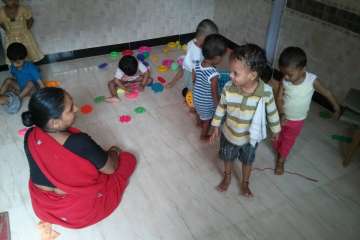New Delhi: India is still performing bad on various health indicators, a new report on global nutrition suggested.
In terms of number of children who are stunned under five years of age, anaemia in women and diabetes in adult, India has a consistent poor rankings.
According to the Global Nutrition Report 2016, India ranked 114 for under-5 stunting in the list of 132 countries surveyed. The total of 38.7 per cent children in the country are suffering from stunting.
This percentage is much higher than the global prevalence of stunting at 23.8 per cent, as per the latest Global Nutrition Report (GNR).
"At current rates of decline, India will achieve the current stunting rates of Ghana or Togo by 2030 and that of China by 2055," noted the report.
Currently, China ranks 26, which is 106 notches above India, while Ghana and Togo rank 52 and 80, respectively.
However, India and many other countries are winning their fight against this form of malnutrition, the report says.
"India almost doubled the rate of stunting reduction in the past 10 years compared with the previous decade. That is highly significant given that India is home to more than one-third of the world's stunted children," GNR said.
Other important finding of the survey is that families with people suffering from cardio-vascular diseases spend 30 per cent of their income on treatment of the ailment.
The report also noted an increase of nearly 58 per cent in the cost of hospitalisation due to cardio-vascular diseases in the country in the period between 1995 and 2004.
"A recent systematic review of the global impact of non-communicable diseases on household income found that cardiovascular disease patients in India spent 30 per cent of their annual family income on direct cardio-vascular disease health care.
"... The mean out-of-pocket cost per hospitalisation increased from USD 364 in 1995 to USD 575 in 2004," the report noted.
Giving the data for other diseases, it said 9.5 per cent adults in India were suffering from diabetes as opposed to nine per cent of the global population. It said India ranked at 104 among 190 countries surveyed for diabetes.
The study also noted that most countries, including India, were off course when it came to meeting targets in fighting obesity which was becoming a "staggering global challenge".
The report is an annual assessment of countries' progress in meeting global nutrition targets established by the World Health Assembly and commitments made at the Nutrition for Growth Summit in 2013.
(With Agency inputs)
Latest India News
